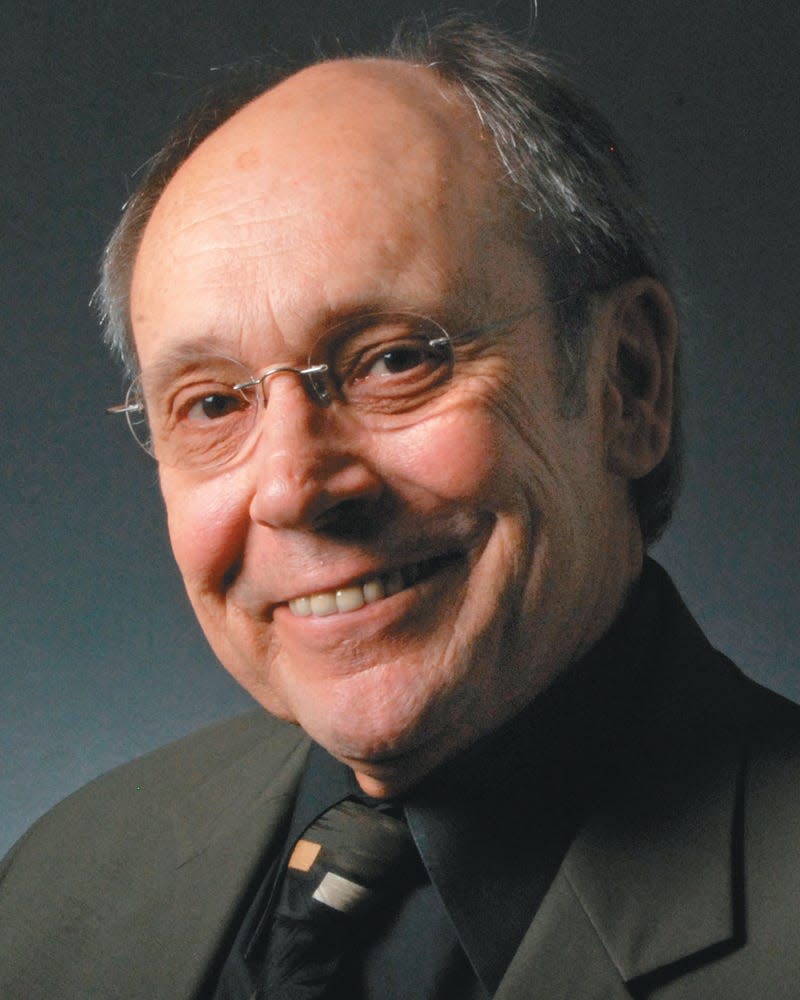Peter Donohue: King and Hanh interconnected
- Oops!Something went wrong.Please try again later.
Because I am white and privileged, I am uncomfortable writing this piece. However, I would be far more uncomfortable not writing it. As we celebrated Martin Luther King Jr. Day I was drawn back to his “Letter from a Birmingham Jail” written in 1963.
King closes the letter with: “Let us all hope that the dark clouds of racial prejudice will soon pass away and the deep fog of misunderstanding will be lifted from our fear-drenched communities, and in some not too distant tomorrow the radiant stars of love and brotherhood will shine over our great nation with all their scintillating beauty.”

It’s been 61 years since he wrote this letter, an epistle of biblical quality and wisdom. This week a CBS poll showed between 72% and 82% of republicans asked, agreed with Trump’s claim that migrants are “poisoning the blood of our country.” The historical reference to the Nazi racial slur is unmistakable and frightening.
There are nice people on both sides of the Charlottesville white supremacy rally statement by then President Trump is a precursor of his present position. The Muslim ban Trump tried to impose at the outset of his presidency exemplifies his unspoken position on white supremacy.
As we draw closer to the 2024 election the racial rhetoric and the attempts to restrict voting are evidence that nationally, equality is on the ballot and totally at risk.
Early in King’s letter, he references the interconnectedness of all. “I am cognizant of the interrelatedness of all communities … injustice anywhere is a threat to justice everywhere. We are caught in an inescapable network of mutuality, tied in a single garment of destiny. Whatever affects one directly, affects all indirectly.” The wisdom of these words is profound. They are lost to those who would deny another the right to vote or the right to immigrate to our country.
This concept of interrelatedness reminded me of Thich Nhat Hanh whose primary belief was the interconnectedness of all. I remembered that King had nominated Hanh for the Nobel Peace Prize in 1967 and so checked to see when the two first met. Thich Nhat Hanh first wrote to King in June of 1965 seeking his help to bring peace to Viet Nam. Like King’s letter Hanh’s reads like a biblical epistle explaining the legitimacy of the Buddhist monks’ self-immolation. Distinguishing it from suicide Hanh writes: “The Vietnamese monk, by burning himself, say with all his strength [sic] and determination that he can endure the greatest of sufferings to protect his people….Their enemies are not man. They are intolerance, fanaticism, dictatorship, cupidity, hatred and discrimination which lie within the heart of man.” Again, the wisdom of these words is irrefutable.
People today resort to tribal behavior believing conspiracy theories that influence their decisions in choosing who leads our institutions; our country.
Even our religious institutions have failed to heed King’s words and fail to recognize Hanh’s interconnectedness. When King writes “An unjust law is a code that is out of harmony with the moral law. To put it in the terms of St. Thomas Aquinas: An unjust law is a human law that is not rooted in eternal law and natural law. Any law that uplifts human personality is just. Any law that degrades human personality is unjust. All segregation statutes are unjust because segregation distorts the soul and damages the personality.” I could not help but think of the recent refusal of the Catholic Synod to allow women deacons. To characterize the restriction on the priesthood as anything but discrimination is without merit.
To call this a pivotal time is an understatement. We are at risk and must act at least in the confines of our own home, our own community. I urge you to read both letters as they are profound, and it seems unfathomable that they were written 60-plus years ago. To think that we have almost gone backwards and that we are far more polarized today may at first be discouraging but it may also be a wake-up call to action; to force us to do the right thing and stand up for decency, equality, and defend the dignity of all. King: “Now is the time to lift our national policy from the quicksand of racial injustice to the solid rock of human dignity.”
— This is the opinion of Times Writers Group member Peter Donohue, who has been involved in the arts in Central Minnesota for more than 35 years. His column is published the third Sunday of the month.
This article originally appeared on St. Cloud Times: Peter Donohue: King and Hanh interconnected
